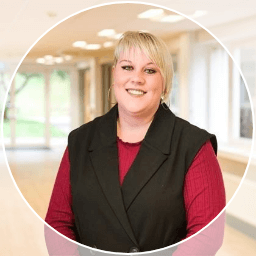Beginning as a Mature Student
Almost 8 years ago, after I had my first child, I decided it was time for me to pursue my academic journey into higher education, something which I had neglected for a number of years. As a mature student going back into education for an undergraduate degree at the age of 27, I was obviously worried about being older than most of the other students at university and if I would fit in or be more of an outcast. I found that being in classes with over 90% of the cohort being around the age of 18 was difficult and whilst they were discussing nights out and what parties they were going to, I was thinking about paying bills, cleaning the house, and looking after a baby.
I did not let any of these experiences deter me from my studies. If anything, this motivated me to do more. I was elected as course representative and wanted to give a voice to other students who might be in a similar situation and for them to know they had a voice and could express any concerns they may have.
Succeeding in Pregnancy
On progressing into the third year of my undergraduate studies, I fell pregnant again and found it immensely difficult to run a household single-handedly, look after a toddler and find time for my studies. I attended my lectures and workshops until the end of the academic year, which took me to my third trimester and by this time I was waddling around the campus and was struggling to fit in the lecture stands. Again, this did not deter me, and I had my son in July, sat my exams in August and enrolled on a Master’s course beginning at the end of September. Everyone I spoke to told me to take time off, that it would be too much for me and that I would not be able to cope emotionally. I knew I had the determination to continue with my studies and so began my Master’s course in which I succeeded in securing the grade I needed to progress onto doing a PhD, as well as being presented with an award for best performance in my cohort.
Balancing Academia and Paid Employment
I knew that doing a PhD would be difficult as a PhD requires more independent work and is more isolating than going to lectures and workshops. As a self-funded PhD candidate, I had to take on employment in order to support myself and provide for my children, which I knew would bring even more pressure into my life. I took work as an hourly paid lecturer, as well as getting involved in many research projects as a research assistant. I knew that gaining this valuable experience would stand me in good stead to go on to apply for a contracted position within the university. I have also promoted my research within the university by being part of their research campaign and showcasing a video of my research and my motivations behind it.
Health Issues
During my time as a PhD candidate, I have also experienced some health concerns in which I have had to see specialists and have doctor and hospital visits. I have been diagnosed with a long-term physical disability which affects my spine and I struggle with aspects of daily life that many people find easy to navigate. My university has been supportive of my diagnosis, which has allowed me to carry on with my research.
Overcoming Challenges
My academic journey has been challenging and demanding. However, I would not change anything I have done, and as my children grow older, they can see the hard work I have put in to pursue my career. They can see that although life can throw obstacles in your path, there is always a way to overcome these. There have been times throughout my years in academia that I thought I would not be able to carry on and that I should just quit. Trying to manage my home life, work life and academic life was incredibly difficult at times, but somehow, I have made it through.
Persevere and Ask For Help
My advice for people in the same situation is to not give up and ask for help if you feel like you need it. Based on my own experiences, I believe universities should promote more support for mature students as well as those who are parents. I was lucky that I had my dad to help me by providing childcare support but unfortunately, not everyone has that luxury and not having adequate support can lead to students dropping out of university.
It is a difficult journey, but with perseverance and determination anyone can succeed in what they wish to achieve regardless of their circumstances.




